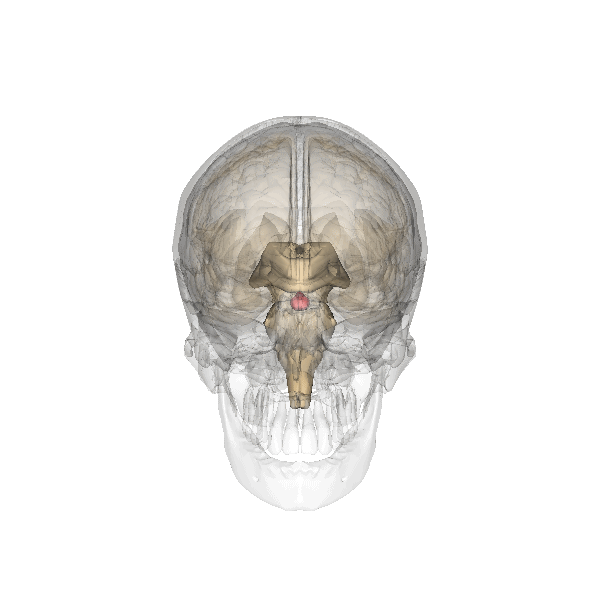Pituitary Gland
Updated November 3, 2024
Hormones and Metabolism Program

This page is under development. Working links will provide starting information. Please let us know about your interest in this page by emailing us here, and check back soon.
The pituitary gland, often called the “master gland,” plays a central role in regulating various physiological processes by secreting hormones that control other endocrine glands throughout the body. Located at the base of the brain, the pituitary is divided into two main parts: the anterior and posterior lobes. The anterior pituitary synthesizes and releases hormones that influence growth, metabolism, and reproductive functions, while the posterior pituitary releases hormones primarily involved in water balance and childbirth. The pituitary receives regulatory signals from the hypothalamus, which connects it to the nervous system, allowing it to respond to the body’s needs and maintain homeostasis by adjusting hormone levels based on feedback from target tissues and circulating hormones.
| Hormone | Target Tissues/Organs | Control Mechanism | Purpose | Low Levels Effect | High Levels Effect | Factors Affecting Function |
| Anterior Pituitary Hormones | ||||||
| Adrenocorticotropic Hormone (ACTH) | Adrenal glands | Regulated by hypothalamic CRH and cortisol feedback | Stimulates cortisol release from adrenal glands | Fatigue, low blood pressure | High blood pressure, weight gain | Increased by stress, hypoglycemia; decreased by cortisol feedback |
| Follicle-Stimulating Hormone (FSH) | Gonads (ovaries/testes) | Controlled by GnRH, inhibited by sex hormones | Regulates reproductive processes, egg/sperm production | Infertility, menstrual issues | PCOS, testicular atrophy | Increased by GnRH pulses, decreased by high sex hormone levels |
| Growth Hormone (GH) | Muscles, bones, liver | Regulated by GHRH and somatostatin feedback | Stimulates growth and cell repair | Short stature, muscle weakness | Gigantism, acromegaly | Increased by exercise, sleep, hypoglycemia; decreased by somatostatin, hyperglycemia |
| Luteinizing Hormone (LH) | Gonads | Controlled by GnRH, sex hormone feedback | Triggers ovulation, testosterone production | Reproductive dysfunction | PCOS, early puberty | Increased by GnRH pulses; decreased by high sex hormone levels |
| Prolactin (PRL) | Mammary glands, reproductive organs | Primarily inhibited by dopamine | Stimulates milk production | Poor lactation, menstrual irregularities | Galactorrhea, reproductive issues | Increased by estrogen, pregnancy; decreased by dopamine, certain medications |
| Thyroid-Stimulating Hormone (TSH) | Thyroid gland | Controlled by TRH, regulated by thyroid hormone levels | Stimulates thyroid hormone release | Hypothyroidism, fatigue | Hyperthyroidism, weight loss | Increased by cold, stress, TRH; decreased by high thyroid hormone levels |
| Posterior Pituitary Hormones | ||||||
| Antidiuretic Hormone (ADH) (Vasopressin) | Kidneys, blood vessels | Regulated by blood osmolarity and blood pressure | Promotes water retention by kidneys | Excessive urination, dehydration | Water retention, high blood pressure | Increased by high blood osmolarity, dehydration; decreased by alcohol, low blood osmolarity |
| Oxytocin | Uterus, mammary glands | Controlled by positive feedback during childbirth | Stimulates uterine contractions, milk ejection | Reduced labor progression, poor milk ejection | Potential social bonding alterations | Increased by childbirth, breastfeeding; potentially altered by stress |


